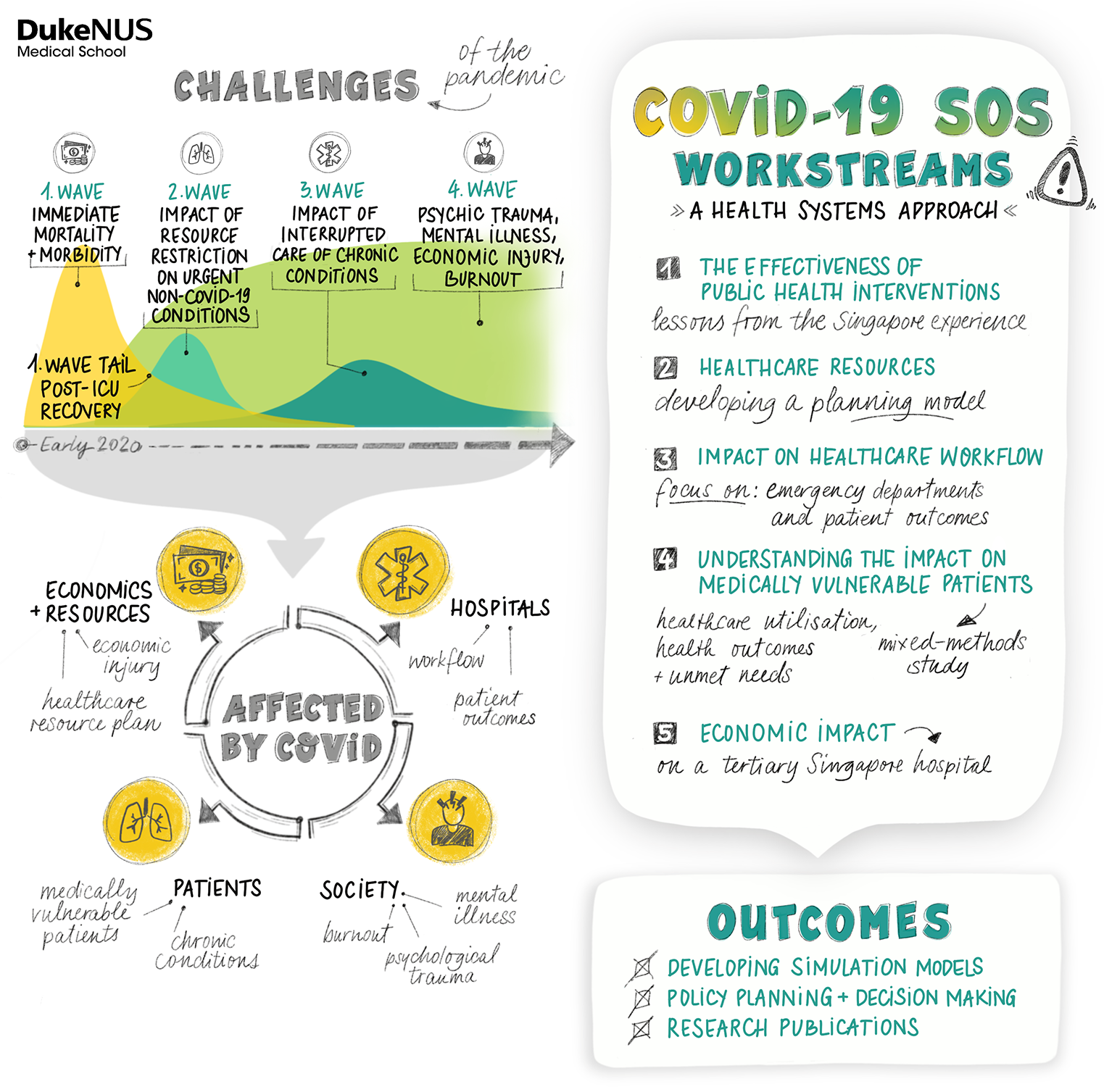Would there be enough beds? What about nurses? What would the impact be on patients who didn’t have COVID-19? Questions like these drove a multi-disciplinary Duke-NUS research team as they set about planning for the likely effects of COVID-19 on Singapore’s healthcare system.
The project, which brought together the full Health Services and Systems Research (HSSR) team at Duke-NUS and the Health Services Research Centre at SingHealth would inform top-level health policy decisions as the pandemic unfolded.
The team’s first key intervention involved using computer simulations to evaluate the impact of different healthcare policies on Singapore’s rates of disease, mortality, and use of medical services.
These simulations would also evaluate hypothetical policies, enabling the 11-strong SingHealth Duke-NUS team to predict a policy’s effectiveness in three distinct possible scenarios: COVID-19 remains under control, becomes difficult to control with local clusters or results in a full-blown local epidemic.
“You can test out policy A, where ‘Okay, I’m going to convert 50 per cent of the beds [to isolation beds],’” says Professor Marcus Ong, the director of HSSR at Duke-NUS, about how the hospital network would need to pivot to COVID-19 treatment capabilities.
“Or policy B, where I’m conservative; I’m going to convert about 20 per cent of my beds.”
These simulations would be timely. A steady flow of data from public electronic health records would inform and shape their trajectories. And Ong and the team would add qualitative data when running them, inputting stakeholder views and policies to nuance their models.
Key work streams in the research project called COVID-19 Virtual Disease Health System Outbreak Model for Singapore, which aptly abbreviates to CoViD-SOS, would focus on understanding how the virus would affect the workflow of emergency departments, intensive care units, operating theatres and the needs of medically vulnerable patients.

THE HSSR TEAM INVESTIGATED HOW DIFFERENT HEALTH POLICIES WOULD IMPACT SINGAPORE, TAKING INTO CONSIDERATION THE CHALLENGES FACED DURING THE PANDEMIC AS WELL AS SOCIETAL FACTORS
“This is where health systems research came to the forefront and showed its value,” adds Ong, who is also a senior consultant with Singapore General Hospital’s Emergency Department. “By nature, health services research is multi-disciplinary, cross-boundary, and collaborative.”
“Our overall goal was — and continues to be — to minimise the impact of the evolving COVID-19 disease outbreak on Singapore’s healthcare systems.”